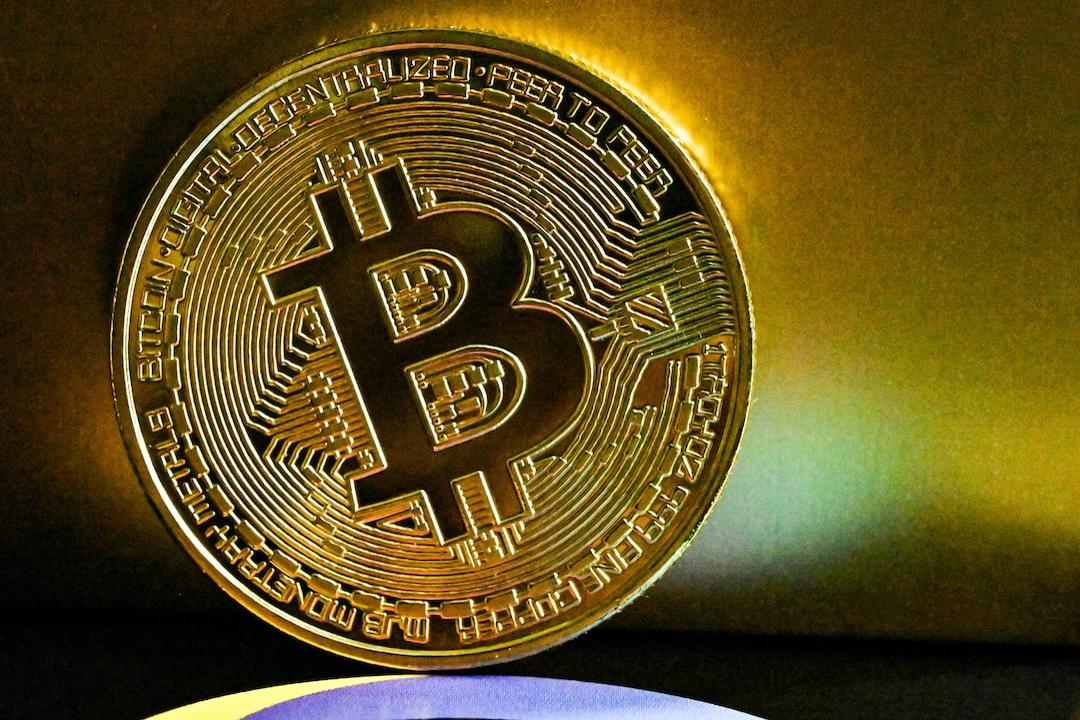Hong Kong Passed Ethereum Spot ETF Faster than the United States, Attracting Wide Attention from Investors. However, this has also sparked discussions on policy sustainability, particularly focusing on the development of virtual assets such as Bitcoin and Ethereum.
(Table of Contents)
1. Adaptability and Forward-thinking of Regulatory Environment
2. Strong Market Driven Force
3. Geographical and Strategic Advantages
4. Seizing Pricing Rights in Advance
On April 15, 2024, Harvest Global Investments Limited announced that it has received the principle approval from the Securities and Futures Commission of Hong Kong to launch two digital asset (Bitcoin and Ethereum) spot ETF products.
These products will be provided through the first licensed and protected digital asset platform, OSL Digital Securities Limited, aiming to address high margin requirements and price premiums caused by shortfalls in Bitcoin’s pricing accurately.
On the same day, Huaxia Fund (Hong Kong) also announced that it has obtained approval from the Securities and Futures Commission of Hong Kong to launch ETF products investing in Bitcoin and Ethereum spot. These products will be provided through cooperation with OSL Digital Securities Limited and BOC International (UK) Trustee Limited, offering trading and custodial services.
In addition, according to Tencent Finance, the Securities and Futures Commission of Hong Kong has updated the list of virtual asset management funds on April 10, preparing to announce the list of the first batch of Bitcoin spot ETFs in Hong Kong on April 15.
In addition to Harvest Global Investments and Huaxia Fund, the first approved batch also includes Bosera Funds and Huili Financial, although the latter two have not appeared in the latest updated list. According to the plan, the Securities and Futures Commission of Hong Kong will list Bitcoin spot ETFs on the Hong Kong Stock Exchange around April 25, at the latest by the end of April.
Harvest Global Investments is one of the earliest asset management companies established outside of China. Since its establishment in 2008, it has developed into a company occupying an important position in the global asset management industry.
The company not only has a strong business foundation in the Asian market but has also successfully expanded to international financial centers such as London and New York. As of now, the total assets under management of Harvest Global Investments exceed $20.7 billion.
As the parent company of Harvest Global Investments, Harvest Fund Management Co., Ltd. has become one of the largest fund management companies in China since its establishment in 1999, managing assets exceeding RMB 1.3 trillion. Its shareholders include China Chengxin Trust Co., Ltd. (40%), China Life Investment Holding Co., Ltd. (30%), and Deutsche Asset Management (Asia) Limited (30%).
As a wholly-owned subsidiary of Huaxia Fund Management Co., Ltd., Huaxia Fund (Hong Kong) has grown into a leading asset management company in the Hong Kong market since its establishment in 2008. Leveraging the strong influence of its parent company in the Chinese market, Huaxia Fund (Hong Kong) focuses on providing diversified investment products to global investors, including long equity and bond funds, hedge funds, and ETFs.
As of the end of 2023, the total assets under management of Huaxia Fund exceed $26.6 billion. The major shareholders of Huaxia Fund (Hong Kong) include CITIC Securities (62.2%), Manulife Investment Management (13.9%), and Power Corporation of Canada (13.9%), which provide solid support with their international backgrounds and financial strength.
Huaxia Fund is also one of the first national social security fund managers, the first corporate pension fund manager, the first QDII fund manager in China, the first ETF fund manager in China, and the first Shanghai-Hong Kong Stock Connect ETF fund manager, among others, making it one of the fund management companies with the widest business scope.
According to a research report by Matrixport cited by CoinDesk, the Bitcoin spot ETF listed in Hong Kong is expected to attract up to $25 billion in mainland China funds through the “southbound trading” mechanism.
The research points out that although the southbound trading mechanism allows up to $70 billion in funds to flow into the Hong Kong stock market each year, the actual usage quota is usually lower. This provides a huge potential source of funding for Bitcoin ETFs.
The report further analyzes that with the depreciation of the renminbi against the US dollar and the increasing interest of Chinese investors in diversified investments, Bitcoin ETF products are particularly attractive. It is expected to attract not only individual investors but also institutional investors seeking hedging opportunities.
In addition to the lively discussion on the background of the two asset management companies, the question of why Hong Kong approved the Ethereum spot ETF earlier than Europe and the United States is also of great concern.
Compared to the strong performance of Bitcoin in the past year, Ethereum has appeared relatively weak, with prices and growth rates lagging behind Bitcoin and altcoins. The director of Hong Kong Cyberport, Kong Jianping, believes that “Hong Kong’s earlier approval of the Ethereum ETF is a lifeline for Ethereum.”

In the research analysis of the community, the reasons why Hong Kong approved the Ethereum spot ETF earlier than Europe and the United States are not only attributed to its flexible regulatory environment and open attitude towards financial innovation but also influenced by the following key factors:
The Securities and Futures Commission of Hong Kong (SFC) is known for its efficient regulatory framework and rapid response to financial innovation. Compared with the SEC in the United States and regulatory agencies in Europe, the SFC is more proactive in exploring how to integrate emerging financial technologies and products, such as cryptocurrency ETFs, into mainstream markets.
For example, the SFC started researching and testing regulatory frameworks related to cryptocurrency assets earlier than other countries, enabling Hong Kong to quickly adapt to market changes and implement new rules.
Hong Kong’s financial market is particularly focused on meeting investor demand, which is particularly prominent among global financial centers. The popularity of cryptocurrencies and related financial products among Hong Kong investors has rapidly increased, providing the SFC with opportunities to promote innovation in areas that have not been fully explored in other regions.
This market-driven force has prompted regulatory agencies to optimize approval processes to launch products that meet market and investor expectations faster.
Hong Kong plays a bridging role connecting the East and the West as an Asian financial hub. This geographical advantage gives Hong Kong a unique strategic position in the global financial dynamics, attracting a large amount of international capital to participate in its market.
In addition, Hong Kong maintains close contact with mainland China under the “one country, two systems” policy while enjoying a relatively independent economic and legal system. This provides Hong Kong with a unique perspective and experimental field in global financial innovation.
“Whoever controls the flow of spot ETFs controls pricing rights.” From the approval of Bitcoin spot ETFs, we can see that Wall Street capital is more dominant in controlling the pricing rights of Bitcoin.
In the global financial market, mastering pricing rights is crucial for market influence and competitiveness. By approving Ethereum spot ETFs first, Hong Kong not only provides new investment tools for global investors but also actively participates in the competition for pricing rights in cryptocurrencies.
However, BlockBeats found that most users on Twitter are not optimistic about Hong Kong’s approval of Bitcoin and Ethereum ETFs, believing that it is not effective from a market perspective.

In response, some netizens also expressed, “Be more optimistic. This is a process of gradual acceptance of digital currencies by a region and a country.”

In the past year, Hong Kong has transformed its policy stance to be more friendly towards cryptocurrencies, attracting wide attention from investors both within and outside the region. However, this policy change has also sparked discussions on policy sustainability, especially in the development of virtual assets such as Bitcoin and Ethereum.
On September 14, Vitalik Buterin stated in Singapore that although Hong Kong has turned to a cryptocurrency-friendly stance since the end of last year, when cryptocurrency projects set up offices in Hong Kong, they should consider the stability of its friendly policies.
In response, Hong Kong Legislative Council member Wu Jiezhuang responded to Vitalik’s concerns. Wu emphasized that Hong Kong’s policy-making follows strict procedures and extensive public consultations, ensuring the stability and continuity of policies. He also invited Vitalik to come to Hong Kong to understand the actual situation and emphasized the transparency and public participation of Hong Kong’s policies.

“Hong Kong’s policy is very stable, and the laws will not change overnight,” Wu wrote publicly on social media.
With further policy development, the Securities and Futures Commission of Hong Kong explicitly stated in the “Circular to Intermediaries on Activities of Virtual Asset-Related Intermediaries” and the “Circular on Licensed Funds Investing in Virtual Assets” released in December 2023 that Hong Kong is ready to accept applications for virtual asset spot ETFs. This policy further demonstrates Hong Kong’s attitude and support as an international financial center for innovative financial products.
These developments indicate that although investors need to assess policy risks in any market, the Hong Kong government has shown clear commitment and support in the field of virtual assets. This not only enhances Hong Kong’s position in the global fintech field but also provides confidence to international investors and project developers, believing that Hong Kong can provide a stable and supportive environment for innovation.

Related Reports
Will Hong Kong Ethereum Spot ETF be “Delayed” compared to Bitcoin listing? Can Chinese investors buy it?
Hong Kong takes the lead in approving Ethereum spot ETF, Bloomberg analysts: Don’t expect significant capital, it will force the SEC to accelerate approval?
Hong Kong Bitcoin and Ethereum spot ETFs approved: 3 fund companies to issue, listed as early as April 25.


